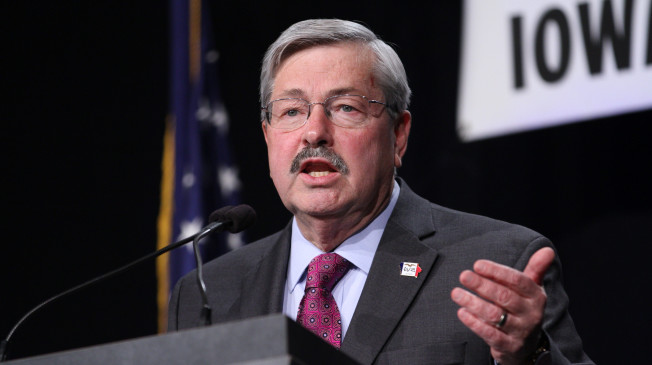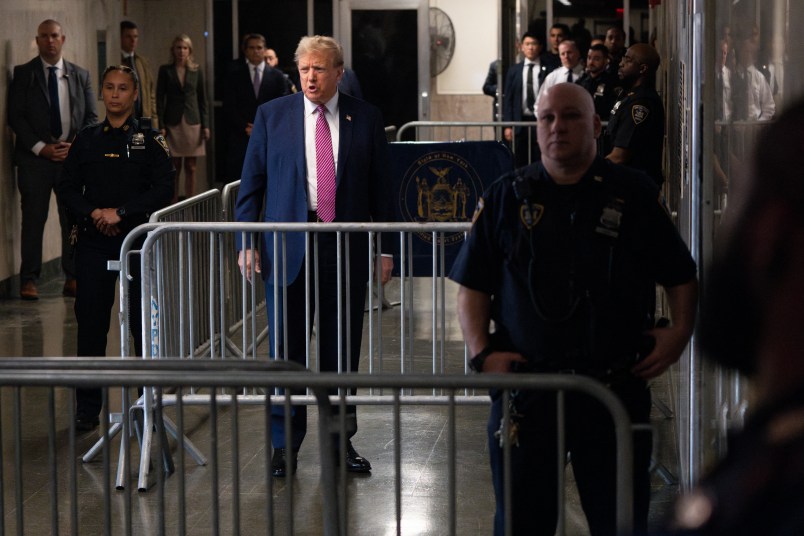DES MOINES, Iowa (AP) — In Terry Branstad’s nearly 20 years as governor of Iowa, he has earned a reputation for steady management, frugality and a distinct absence of drama. Gray-haired, smiling and always attired in a crisp business suit, he’s been a model of Midwestern stability and owner of a public approval rating over 60 percent.
But the 67-year-old governor now finds himself in an unfamiliar position. He’s fending off multiple mini-scandals and has become a political target in a mid-term campaign that was supposed to be about the Democratic president’s problems, not his.
In the last few weeks, Branstad has come forward grim-faced to face questions about why his administration pushed dozens of state officials out of their jobs and paid some to keep quiet about it; whether it kept a blacklist of banned former employees, contrary to a judge’s opinion about the legality, and whether an appointee was mishandling unemployment cases.
The latest eruption came Tuesday, when he abruptly fired an administrator he had been defending for weeks.
The cycle of explaining and defending comes as a surprise to those who thought such doings ended with the turbulent tenure of Branstad’s Democratic predecessor, Chet Culver. So far, it isn’t posing a threat to Branstad’s re-election – the Democratic lawmaker challenging him, Jack Hatch, has less than a tenth of Branstad’s campaign treasury and isn’t well known.
But some Republicans are growing anxious. The party is trying to win an open U.S. Senate seat and control of the state Senate, both of which have been held by Democrats. A strong, unhampered Branstad was supposed to help lead that effort.
“These distractions are not healthy for anybody,” said Jeff Boeyink, Branstad’s former chief of staff. “The governor’s chief asset is his honesty and integrity. Anything that threatens that is a potential problem.” But, he added, “Iowans will give him the benefit of the doubt.”
Branstad insists the problems are temporary.
“It’s just a bump along the road,” Branstad told The Associated Press last week. “There’s always going to be little problems along the way.”
But the drip-drip of disclosures in the controversies shows no sign of ending. Senate Democrats say they suspect a pattern of secrecy and inside maneuvering in the administration, and intend to keep digging with hearings to get to the bottom of it.
“I don’t think this is over, not over by a long shot,” said former state Democratic Party Chairwoman Sue Dvorsky. “I think that it really does point to a culture of arrogance.”
After serving four consecutive terms in the 1980s and 1990s with few political challenges, and then a stint as a college president, Branstad returned to the governor’s office in 2011 pledging to address a $900 million state deficit left from the recession.
The details of how Iowa accomplished its cost reductions are now coming to light. After 1,200 state jobs were eliminated by attrition or layoffs, 321 employees were given termination settlements, some of which included confidentiality agreements. Ten employees who signed the agreements were paid a total of $427,000.
A story in The Des Moines Register revealing the agreements prompted an outcry over why the state was spending money to buy silence.
“Did the governor, did the executive branch in fact dump state employees for political reasons?” said Sen. Mike Gronstal, the Democratic majority leader.
Branstad initially denied any irregularities in who was chosen for layoffs and attributed the suggestion to “disgruntled” employees. But last week, he suddenly fired the official responsible, Mike Carroll, director of the Department of Administrative Services, who had denied paying for silence.
“There’s new evidence that’s come out contrary to what he assured me,” Branstad said.
Democrats say they intend to determine who else may have known about the payments.
The other controversies haven’t been as large, but fed criticism that Branstad wasn’t plugged in to what his administration was doing.
He was pressed to explain a secret list of former employees barred for rehiring, a practice that administrative law judges had questioned, and rebuffed a lawmaker’s request to review his workforce development director’s treatment of employment benefit cases. Not forgotten was an incident last year in which a state police official was fired after he said he complained about the governor’s SUV speeding at 84 mph through highway traffic.
Branstad’s problems were a welcome diversion for Democrats and their U.S. Senate candidate Bruce Braley, who was caught on video recently suggesting that, as a lawyer, he was better qualified for serving on the Senate Judiciary Committee than Republican U.S. Sen. Charles Grassley, a farmer.
If the turmoil continues, some Republicans worry it could distract from the message they need to run on.
“We’ve made openness and transparency a hallmark of this administration,” Branstad said last week.
Copyright 2014 The Associated Press. All rights reserved. This material may not be published, broadcast, rewritten or redistributed.









